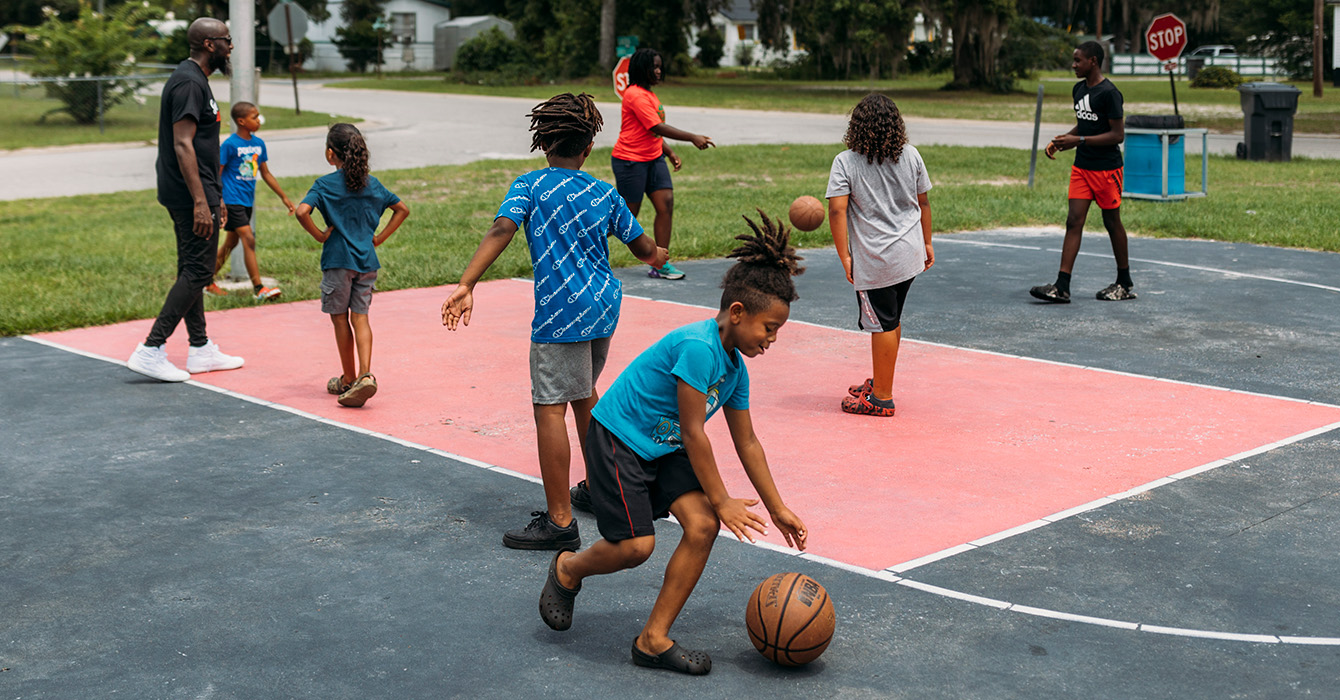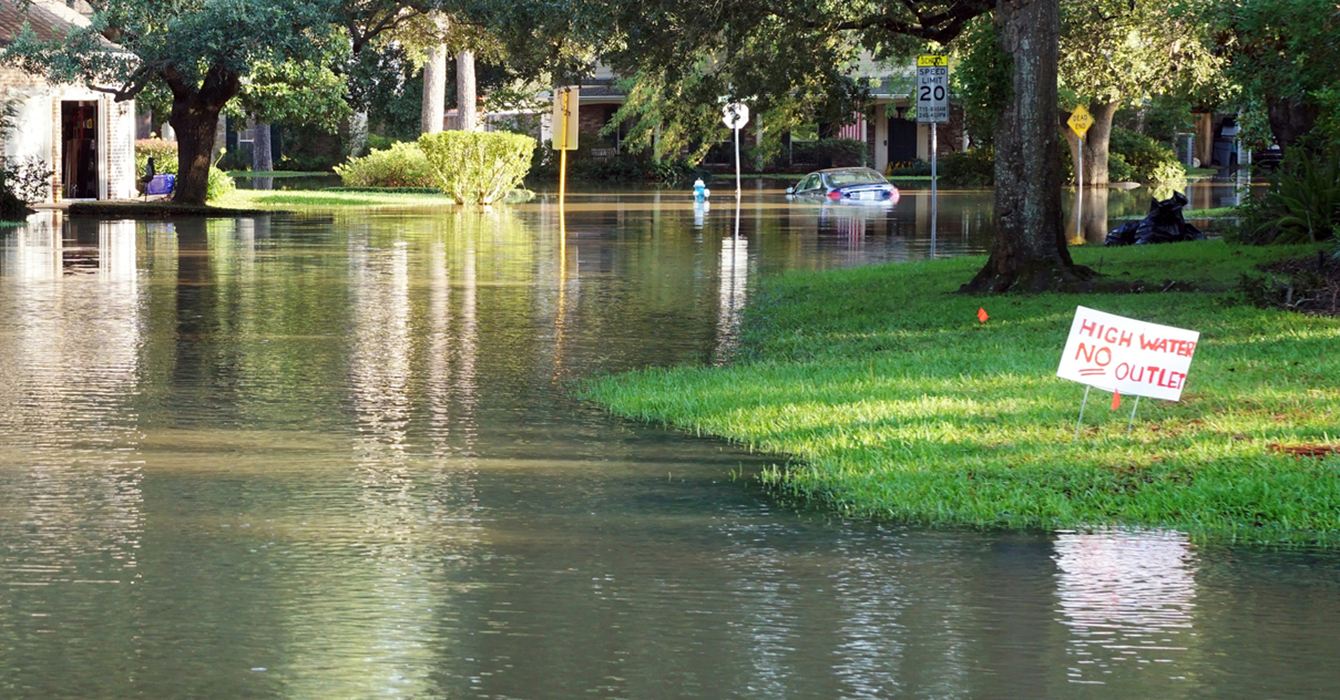I clutched my banner proudly as I rounded the corner into St. Peter’s Square in Vatican City, walking between my new Hindu and Jewish friends. As we marched, we chanted the Hindu mantra “Hare Rama Hare Krishna” and sang the Taizé-like repetition, “When the world is sick, can’t no one be well, but I dreamt we were all beautiful and strong.”
My heartbeat quickened as I saw a sea of giant green waving leaves held by the thousands of people gathered to listen to Pope Francis’ weekly address. My friends hoisted banners that read “Many Faiths, One Planet” and “Solar Power is from the Heavens.” Everywhere, there was laughter, hugging and tears of joy.
As I stood in the square, I thought to myself, “Surely, this is the kingdom of God.” Where else could there be such beauty and such unity around protecting creation? The barriers that are typically erected between religions, cultures, races and nations felt nonexistent as we focused on the common goal that unites us: seeking an earth restored.
This was the Una Terra, Una Familia (One Earth, One Family) March on June 28, 2015. We represented Christian, Catholic, Buddhist, Muslim, Hindu, Sikh, Baha’i, indigenous and other faith traditions, and were in the square to thank and support Pope Francis for his papal encyclical “Laudato Si.”
We had been selected to participate in the Emerging Leaders Multi-Faith Climate Convergence, sponsored by OurVoices and GreenFaith, which brought together 100 young adults from more than 40 countries for five days at the end of June. Our goals were to engage in interfaith dialogue and amplify the faith voice on climate change in preparation for the UN climate talks in Paris this December.
As a Christian, I am called by my faith to care for God’s creation, vulnerable communities and future generations. I am deeply moved by 1 John 4:20-21: “For those who do not love a brother or sister whom they have seen, cannot love God whom they have not seen. ... Those who love God must love their brothers and sisters also” (NRSV).
I truly believe that action on climate change is deeply connected to Christianity as a matter of justice. If I desire to love others, I must work for an earth restored. It was incredible to be surrounded by 100 others who have different faith traditions yet have come to the same conclusion.
Each evening during the meeting, we gathered in a grassy circle, surrounded by peacocks and palm trees, to share prayers, songs and rituals. The piercing cry of the shofar marked the beginning of our time together and served as our call to action. As we stood together in the evening sun, my Muslim friend from Bahrain read words from the 13th-century Sufi mystic Rumi, who wrote, “Christian, Jew, Muslim, shaman, Zoroastrian, stone, ground, mountain, river, each has a secret way of being with the mystery, unique and not to be judged.”

Dhanisha Patel (from the UK), Emily Wirzba and Rebeca Alejandra Barragán Bravo (from Mexico) on the first night of the Convergence. Participants broke into introductory small groups to discuss the connection between faith, work and climate change.
As my Tewa/Catholic friend performed a “smudging” purification ceremony from the American Pueblo tradition, we prayed and thanked our mother earth. As the sage smoke was wafted over each individual, we silently held each other in the light. What was sacred to one faith tradition became meaningful to us all.
In addition to sharing faith practices, we exchanged stories in workshops, presentations and small group conversations about how climate change is already affecting communities.
My friend from Fiji gave an emotional plea that left me in tears for the rest of the day. An island nation, her entire country and its culture are existentially threatened by sea level rise. Hearing her say, “We’re begging the world to come save us. ... It is a question of our everyday survival. … Can your country spare some soil?” was perhaps the most powerful moment of the convergence for me.
Her story forced me to connect the issue of climate change to the realities and fears that people face every day in a tangible, immediate way.
We were able to connect deeply, share our stories and brainstorm action plans as a group because this gathering was safe -- the safest space I have ever experienced for dialogue and learning. No one was trying to convert others or pass judgment on others’ beliefs. Rather, we were all eager to learn, and we delighted in our collective understanding of our earth as a gift from the Creator, something to be treasured and protected.
As a young Christian leader, I believe that interfaith dialogue is crucial for engaging young people in their faith and activating them to address the ecological injustices facing our world today. It is easy to become disillusioned by the fractious relations between races, religions and nations. With so much distrust of “the other” in our nation’s discourse, it is easy for young people to believe that their voices cannot make a difference.
Interfaith dialogue, however, is a way for young people of faith to build bridges, working together within the beautiful diversity of humanity to heal our divides. It invites us to challenge our own assumptions, because it highlights the common values we share. Interfaith dialogue provides us with a path forward for solving our most difficult problems; the amplification and unity of our shared faith voice has the power to motivate politicians and world leaders to make the vast changes needed to protect God’s creation.
Now, when I wake up each morning, I sing to myself the Baha’i prayer, “I am, O my God, but a tiny seed which Thou hast sown in the soil of Thy love,” and I remember the powerful network of friends I have across the world working for justice.
Climate change is a heartbreaking issue. But I left the convergence with gratitude and a full heart. I gained hope by reveling in what unites us rather than what divides us. The relationships I formed and the stories I heard inspire me to carry on, despite the immensity of the problem. My own faith has been strengthened, and I feel called to share with my own congregation and colleagues why people of faith must work together in the face of ecological injustice.








